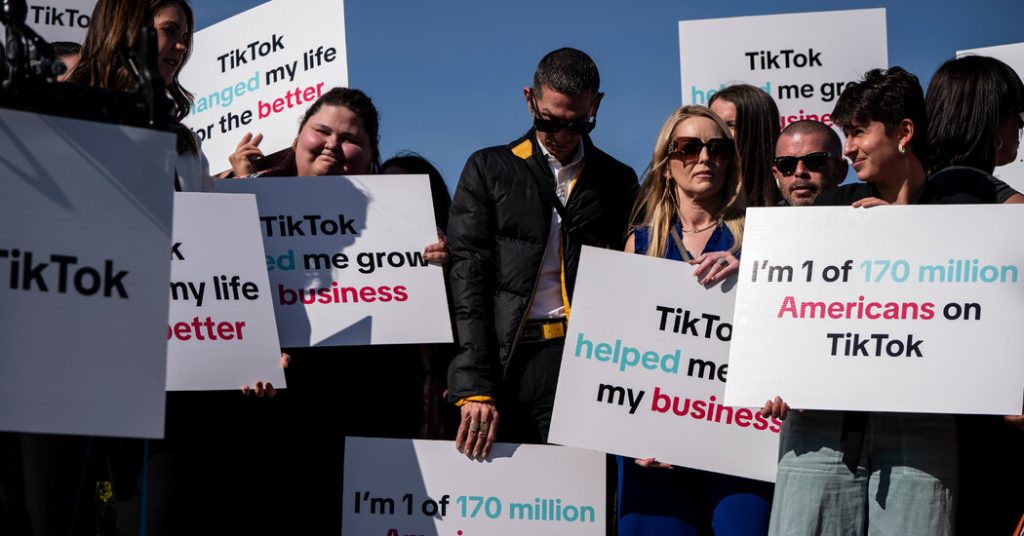Lawmakers in the United States have passed a bill that would require the sale of TikTok by its Chinese owner, ByteDance, or ban the app altogether. The legislation was approved citing national security concerns due to TikTok’s Chinese ties, raising fears that the Chinese government could use ByteDance to access sensitive data or spread propaganda to its 170 million U.S. users. The proposed law gives ByteDance 270 days to sell TikTok, a timeline that could be extended by the president to a year. However, the process is expected to face legal challenges and possible resistance from Beijing, making it unclear who will have the resources to purchase the app at a hefty price.
Experts anticipate that TikTok will likely challenge the measure in court, possibly on First Amendment grounds, arguing that a forced sale could infringe on users’ free speech rights by allowing a new owner to alter content policies. The American Civil Liberties Union may also join the legal battle against the bill. The government will need to provide a strong argument that ByteDance’s ownership of TikTok poses a national security threat that justifies limiting speech to move forward with the legislation. Prior legal battles over TikTok restrictions have shown a trend of protecting expressive activity on digital platforms.
The high price tag for TikTok’s potential sale is estimated to be in the tens of billions of dollars, limiting potential buyers to tech giants like Meta and Google due to antitrust concerns. Private equity firms or investors may form groups to acquire TikTok, yet the approval process by the U.S. government remains a crucial hurdle. Previous negotiations with Microsoft and Oracle in 2020 did not result in a sale, signaling the challenges of finding a suitable buyer for the app. The process of divesting TikTok from ByteDance, if a sale is pursued, is expected to be complex, especially considering the interconnectedness of the two entities.
The legislation prohibits any continued association between ByteDance and TikTok post-sale, leading to uncertainties regarding the separation process, as TikTok employees globally use ByteDance software in their operations. It remains unclear if ByteDance would sell TikTok’s entire global operations or just its U.S. segment, which houses a significant employee base. The app’s recommendation algorithm, crucial to its success, is developed by Chinese engineers employed by ByteDance, posing a challenge in separating the U.S. portion of TikTok from the parent company. Additionally, export restrictions issued by China during the previous attempted sale in 2020 add further complexity.
The role of the Chinese government in potentially blocking a TikTok sale remains unpredictable, as officials have criticized the legislation passed by the U.S. Congress. China previously expressed opposition to a sale of the app by ByteDance, and its export regulations may grant Beijing authority over the sale of TikTok’s valuable features, such as the content recommendation algorithm. The Chinese government has the potential to retaliate against American companies, exemplified by a recent demand to remove Meta’s WhatsApp and Threads from Apple’s App Store for national security reasons. The outcome of the TikTok sale process is uncertain, contingent on legal challenges, buyer availability, and geopolitical dynamics between the U.S. and China.


